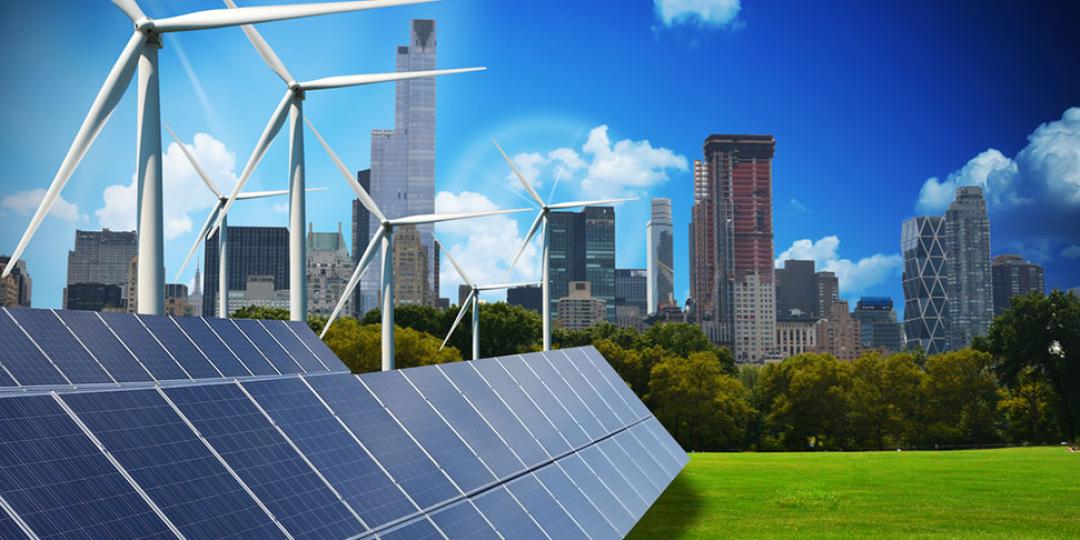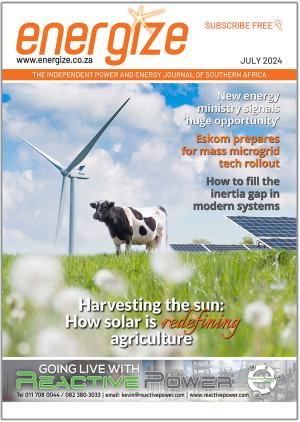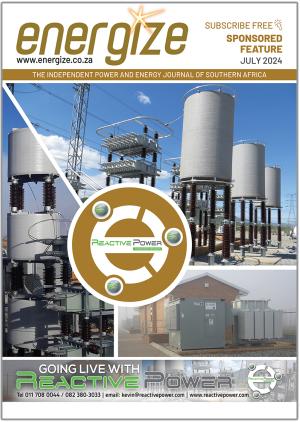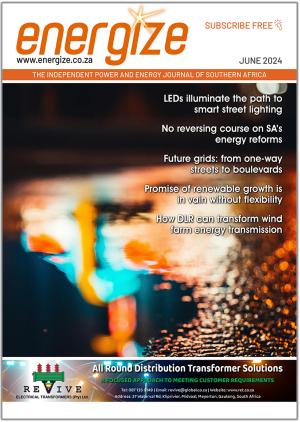by Graham Abrahams, ABB South Africa
There is a new urgency in South Africa’s energy sector following the lifting of the threshold for companies to produce their own electricity – and it could breathe new life into the renewable energy sector.

President Ramaphosa’s recent lifting of the threshold for companies to produce their own electricity without a licence to 100 MW has changed the game for renewable energy – and indeed, the entire energy sector – in South Africa.
It’s an important step towards establishing energy security, which is critical for our country’s economic recovery. It will enable companies to build their own energy facilities to cater to their own needs. These projects will also be able to “wheel” surplus energy to the grid, which will help ease a prevailing supply deficit estimated to be in the region of 5000 MW.
How much of a difference can 100 MW make to the broader energy landscape? More than you may think. According to the national power producer, Eskom, 1 MW of electricity can power 650 average homes – which means 100 MW could power the entire residential power needs of a city the size of Kimberley, which has a population of 140 000.
While the announcement of the new threshold isn’t specifically aimed at renewables, it’s clear that it’s going to provide fresh impetus to South Africa’s renewable energy sector. This is at a time when our power grid is facing a major transformation driven by the need to integrate renewable energy, improve energy efficiency and allow consumers more control over their energy consumption.
Earlier this year, the Department of Mineral Resources and Energy (DMRE) launched the long-awaited fifth round of the Renewable Energy Independent Power Producer Procurement Program (REIPPPP), for the procurement of 1600 MW of onshore wind and 1000 MW of solar photovoltaic capacity. The IPP Office is also set to open bidding for 3000 MW of gas-to-power, 1500 MW of new coal and 513 MW of battery energy storage in the coming months.
The country’s biggest challenge isn’t necessarily creating new sources of power, though. It’s how to move as much electricity as possible from new generation sites, whether renewable or not, without impairing the function of the power network that needs it.
Energy storage
That’s where modern battery energy storage systems (BESS) play an important part in transforming the energy grid by driving wider adoption of renewable energy solutions and helping to improve grid stability. BESS solutions level out load peaks and connect more renewable energy to existing electrical networks by balancing the sometimes-inconsistent supply of renewable power.
In addition to voltage control, they also store surplus energy from wind and solar farms, which can later be used to level out peaks in grid loading. This way, renewable power can be put to the most efficient use possible. This doesn’t just increase grid reliability but supports a longer-term vision of decarbonising energy generation and making sure more of the country’s coal-dominated energy mix comes from renewables in the coming decades.
Eskom intends to decommission several coal-fired power plants by 2030 as it diversifies its energy mix to include solar and wind projects.
Ultimately, the key to realising the new power grids of the future are the digital solutions that enable it. ABB Ability offerings can help with remote management of energy storage. In recent months the ABB Ability team in Italy installed an Electrical Distribution Solution System (EDCS) – now renamed Energy and Asset Management system – that can monitor electrical distribution points, this system is available globally. This can be done via a cloud-computing platform which allows managers access to an ecosystem of features that used advanced algorithms and machine learning to continuously improve the site’s energy efficiency and power asset management.
With safe, smart and sustainable solutions available to transform how we manage energy efficiency, the future is indeed now.
Graham Abrahams is Senior Vice President, Electrification Products Division at ABB South Africa.
Send your comments to rogerl@nowmedia.co.za
















